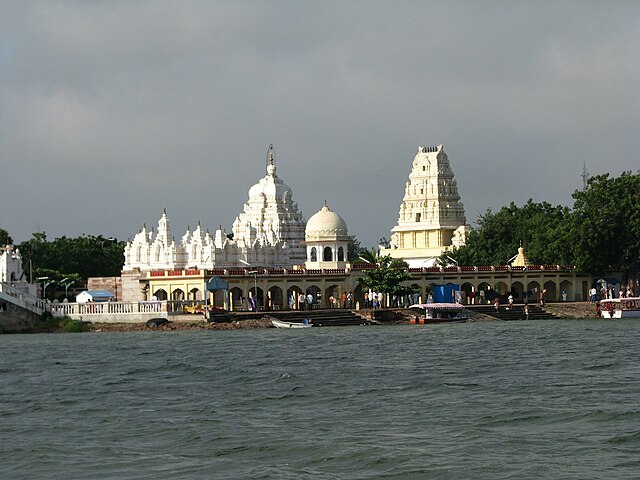Basava (1131–1196), also called Basavēśvara and Basavaṇṇa, was an Indian philosopher, poet, Lingayat social reformer in the Shiva-focused bhakti movement, and a Hindu Shaivite social reformer during the reign of the Kalyani Chalukya/Kalachuri dynasty. Basava was active during the rule of both dynasties but reached the peak of his influence during the rule of King Bijjala II in Karnataka, India.
Basava
Arjunavad inscription of the Seuna king Kannara, dated 1260 CE An inscription related to Basava and his family details. Names references Basavaraj and Sangana Basava.
Kudala sangama in Bagalkot district, where Basava's samadhi is located.
A necklace with pendant containing linga symbol of Shiva are worn by devotees of the tradition championed by Basava. Rudraksha beads (shown above) and Vibhuti (sacred ash on forehead) are other reminders of one's principles of faith.
Lingayatism is a Hindu denomination based on Shaivism. Initially known as Veerashaivas, since the 12th-century adherents of this faith are known as Lingayats.
Basava, the influential leader of Lingayatism
An idol of Akka Mahadevi holding Ishta Linga in her left hand
A necklace with pendant containing linga symbol of Shiva are worn by Lingayats. Rudraksha beads (shown above) and Vibhuti (sacred ash on forehead) are other symbols adopted as a constant reminder of one's principles of faith.
Kudalasangama in Bagalkot district, a temple and pilgrimage site linked to Guru Basavanna





